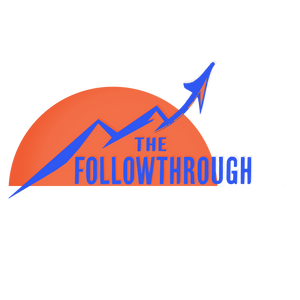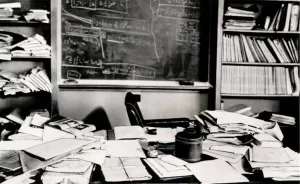For most of my working life, if you visited my office, you would find me craning my neck to see you around piles of paper. An aerial view of my desk would reveal an archaeological dig site where burial mounds, trash heaps, broken foundations, and partial walls formed a maze with no openings.
I deluded myself into believing: cluttered desk = brilliant, creative mind. I would occasionally do research to find pictures of people like Einstein digging out from a paper avalanche with the help of red-coated search and rescue workers. See.
Of course, the manufacturing inputs for a CPA firm are plant-based sheets, and in the early days paper organized in manila folders was the only option. But a tidy desk would have stacks of color-labeled folders organized into battalions. Not mine.
I have embarked on countless get-organized safaris - from book daily planners, to complicated looseleaf systems, to spreadsheets, to a variety of software applications. I scheduled these hunting trips after deadline rushes and, upon researching the latest best solution, would dive into classifying and sorting with gusto. My zest would quickly fizzle, doused by monotony and the horrifying realization of how much work was buried there by ancient civilizations.
So, I would give up after 20% of the work had reduced the pile by 80%, but the pile remained. But I would stay with my new system until the heavens opened and the new deluge began, and I had to work like a shark in a feeding frenzy - no time to plan or organize. Set the cycle to repeat.
Technologies improved, we began digitizing paper (scanning, saving in bits and bytes), and I would quip to visitors, "We've gone paperless, as you can tell by looking at my desk - snicker, snicker."
My glib exterior belied the nagging realization that this approach could not be healthy. In an already stressful business walking into my dig-site-of-an-office always gave a sharp mental tachometer burst - like gunning the engine on my '68 GTO. To be clear, this work is related to one-offs or small problems to solve - not my main workflow. But there are still unhealthy emotions:
- feeling anxious about not focusing on important work that might be in there (I always have more to do than I can possibly get done today.)
- feeling pressure about needing to attack the pile (I always have more urgent tasks to complete first.)
- feeling a bit depressed about not being in control (but I sure am busy.)
- feeling unhappy from seeing the physical evidence of my organizational shortcomings (And, no, sweeping paper under the rug is not a solution.)
- not feeling gratitude or thanks for the work.
I report embarking on another safari, but this time armed with some brain health knowledge: clutter causes unnecessary stress and is unhealthy. I have long believed the experts who teach organization improves productivity, but find it hard to implement in the frenetic pace of busy seasons - we crank out a ton of good work. It seems irrational to have an extended planning session when taking on 50-caliber Gatling gun fire. But we must.
Our brains process serially, although a lot goes on simultaneously in the background. So we do ourselves and our clients a disservice when we jump around trying to serve everyone at the same time, or self-distract by glancing at a messy pile of work in process (or stop to read a text or e-mail, for that matter). Interruptions kill productivity.
Here's what I can report from my latest expedition, during which I scanned all the papers and linked them to a task in my application:
- I feel calmer in my office and have a sense of control. I am a little smug about discovering what a big desk I have.
- I have cleaned up some old "can of worms" projects by injecting the work into my plans.
- I feel empowered to ignore interruptions or other unplanned "urgent" demands until I work through the one or two open projects on my desk. Giving in to constant crisis mode causes anxiety, exhaustion, and will decrease output.
- I know how much work I have and can better prioritize and delegate. There are no mysteries to exhume or unpleasant surprises awaiting.
- I no longer feel a sense of guilt that I should be doing something more urgent while taking more time for daily organizing and planning. It is satisfying work.
The tools I use are integrated into Microsoft 365: SharePoint or Onedrive for document storage; Planner in Teams for shared work; To Do for tasks.
Since I am doing this in the midst of tax season, I have a good shot at sticking with it this time. I know it is helping my stress and mental health, and I hope these tips help you.

